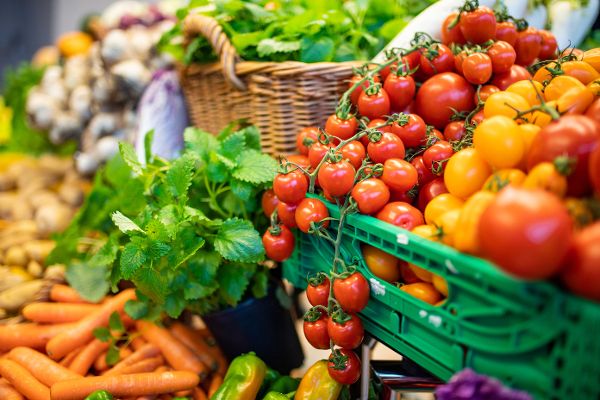Austria strives to remain EU’s number one for organics
Last week, Austrian Minister of Agriculture Norbert Totschnig invited all interested parties to the annual Ministry of Agriculture organic meeting aimed at ensuring Austria maintains its primacy as Europe’s number-one for organics.
Agriculture Minister, Norbert Totschnig, said: “Austria is the premier organic country in Europe and it is our goal to keep it that way. We will succeed in this through the “Organic Action Programme 2023” within the framework of the new Common Agricultural Policy.
The action programme includes, among other things, the support of the Green Deal targets, the consideration of the measures of the EU Organic Action Program, the implementation of the Organic Regulation 2018/848 as well as the increase in demand for organic products.
“According to the EU Organic Action Plan, organic areas in Europe are to be expanded to 25 percent by 2030. With more than 26 percent of the acreage and 22 percent of our farms being organic, we have already reached this target. We are aiming to expand this to 30 percent by 2027, continuing to play a pioneering role in Europe,” said Totschnig. The way to achieve this is through the new Common Agricultural Policy, in which organic production plays an important role. Support measures amounting to around 550 million euros per year will be available for this purpose. Furthermore, ‘organic’ will again exist as a separate measure in the ÖPUL environmental programme.
“More than ten percent of the food purchased is organic. We are seeing that consumers are remaining loyal to these products, despite generally increased prices. Those who buy regionally are strengthening our family farms, are protecting the environment through shorter transport routes and to top it all off: the added value remains in the country,” said Totschnig.
“Organic agriculture is an important instrument for achieving the climate and biodiversity goals of the Green Deal. It must be continuously strengthened and expanded accordingly. This requires the coordinated use of a set of diverse measures and instruments. The Organic Action Program addresses many of these instruments, making a significant contribution to the further development of organic at the national level and to maintaining the organic role model within Europe. As an organic association, it is our concern to contribute to the implementation of the diverse measures of the Organic Action Program – from advisory and educational services for farmers to informing consumers about the benefits of organic agriculture for the environment and society,” BIO AUSTRIA Chairwoman Gertraud Grabmann said.
“Despite a generally high inflation, sales of organic food in Austria are far above the comparable period of 2019 and 2020 in terms of volume, and only marginally behind the record sales year of 2021. The fact that organic food in Austria shows such stable sales in times of inflation is due to the high environmental and quality awareness of Austrians. We should strive to continue this situation, in order to maintain market stability and to achieve the goal of a 35 percent organic share by 2030, which was set in the Organic Action Program. Since ongoing evaluation measures are being carried out along the way in order to be able to improve measures if necessary, I am very optimistic that we will achieve this goal together,” said Grabmann.



